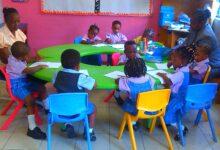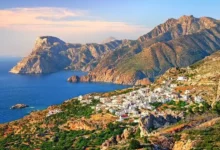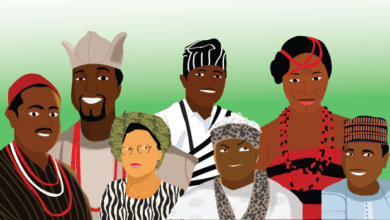This post is about the Traditional marriage Rites and Ceremonies in Nekede Village, Owerri West L. G. A of Imo state, Nigeria.
Here in Nigeria, people love traditional marriages for the rich display of culture and tasty meals they bring. I come from a village that equally loves their culture enough to never want to miss a chance to be part of a traditional marriage. That village is Nekede.
👉 Relocate to Canada Today!
Live, Study and Work in Canada. No Payment is Required! Hurry Now click here to Apply >> Immigrate to CanadaNekede is a community in Owerri West Local Government Area of Imo state. It is a place populated by a large number of students from two surrounding higher institutions: The Federal University of Technology, Owerri and the Federal Polytechnic, Nekede, Owerri. The landowners make up a small part of the residents.
Myth versus reality.
It is said that Igbo marriages, particularly traditional marriages are the most expensive Nigerian marriages. The bride price is believed to run into several hundreds of thousands and even millions of Naira.
Then there is the list, the infamous list. The list that includes yards and yards of expensive cloth, money for trinkets and other clothing accessories, tubers of yam, bags of rice for the immediate family and the community of the bride.
There is some truth in this but it is exaggerated.
The whole truth is that when it comes to marriage it is “different strokes for different folks.” There are people who believe in following culture and tradition to the last. Letting that ‘list’ cause their in-laws to spend a fortune marrying their daughter.
Others believe in tailoring local traditions to suit their immediate needs. They cut their coat according to their cloth and look for a lady whose family does the same.
Many people complain about how expensive Igbo traditional marriages are but they fail to understand why.
In Nekede, just like in most rural Igbo communities, a daughter is viewed as not just a child of one man and woman who bear the same surname. She is seen as a child of the community. She is seen as someone whose upbringing is directly or indirectly as a result of community input. Almost everyone knows her and cares about her welfare.
👉 Relocate to Canada Today!
Live, Study and Work in Canada. No Payment is Required! Hurry Now click here to Apply >> Immigrate to CanadaOf course, this is not always true. In fact, it is hardly ever true. Igbo communities are just like any other community of people. They are made up of selfish people, greedy people, thieves and worse. Just like in the real world, many people in Nekede are more concerned about themselves and their immediate families than about caring for the upbringing of someone else’s child.
A lot of parents know this. That is why they do not let their community unnecessarily influence what happens at the marriage of their children. Many parents choose to give the community little or nothing from the ‘list’ because they understand this.
Generally, a traditional marriage in Nekede goes this way:
First stage.
• When a man is getting married to a lady from Nekede, he brings his father or any much older close male relative to see the parents of the lady. He brings wine to her father as he tells him about his wish to marry his daughter. This part of the marriage rite is called mmi ajuju. It literally means “asking wine”, that is wine brought to ask for a lady’s hand in marriage.
• Besides the bride-to-be’s father and mother, some important members of her extended family will be present. Her uncle or uncles may be present. Other older extended family members may be there too. It all depends on what her father decides, what the bride wants and who is available.
• If the family accepts the man’s marriage proposal, there will be eating and drinking to celebrate the new relationship between the two families, even though they are not yet married.
• The two families will discuss further and a date for the main marriage may be agreed on before the feasting ends or some days later.
• The feast itself will contain local delicacies such as bitter kola, garden eggs, ose oji, ugba, okporoko and fresh palm wine.
• In the old days, a prayer to the ancestors was said at the feast. Today, a Christian prayer is usually offered.
Usually, the young couple will get some alone time together. Though this was not allowed in the past, nowadays it is accepted in many families.
The lady will have a chance to talk to her lover alone, away from the hearing of others. It is the time for her to scold him for not calling her the night before and for him to tell her how busy he has been for weeks but how much and how often she has been running through his mind.
The young man will get to express his undying love for her and talk about possible dates for the marriage. They have gone beyond the wooing stage so they will likely hold hands and plan their future marriage and life together as a couple.
Sure, there will be other discussions and meetings with people from the two families present until the day of the marriage proper.
Second and final stage.
The second stage is also the last stage. It is the day of the marriage itself. It is called igba nkwu. It literally means “to drink palm wine.” Nkwu is a special type of palm wine made from the raffia palm. It is known for its sweetness and intoxicating power.
After the guests have exchanged greetings and friends and relatives of the young bride and groom have spent some quality time catching up, the igba nkwu begins.
• The bride walks around in the audience with a wooden cup filled with palm wine. She looks for her husband so she can give him the cup of palm wine. This is a way of identifying him among all the men gathered.
• Already, the husband will have hidden in the midst of the audience. Different men will call out to the bride asking to be given the palm wine. The bride will find her husband in the audience and give him the palm wine.
• Taking the cup from his bride, the man will drink it while his bride kneels and waits for him to finish drinking it.
• Together, the bride and groom will approach the father of the bride and kneel before him. The father will place his hands on them and bless both of them after the bride tells her father that the man with her is the man she wants to marry.
• Feasting will follow with local delicacies like ofe owerre, ugba, pounded yam, cocoyam served. Beer, assorted wines and fresh palm wine will also be served.
• Usually, the bride price will already have been negotiated and paid behind closed doors.
As in all marriage ceremonies, marriage rites in Nekede are as cheap or as expensive as the two families involved want it to be.
Share your views in the comments section below.







